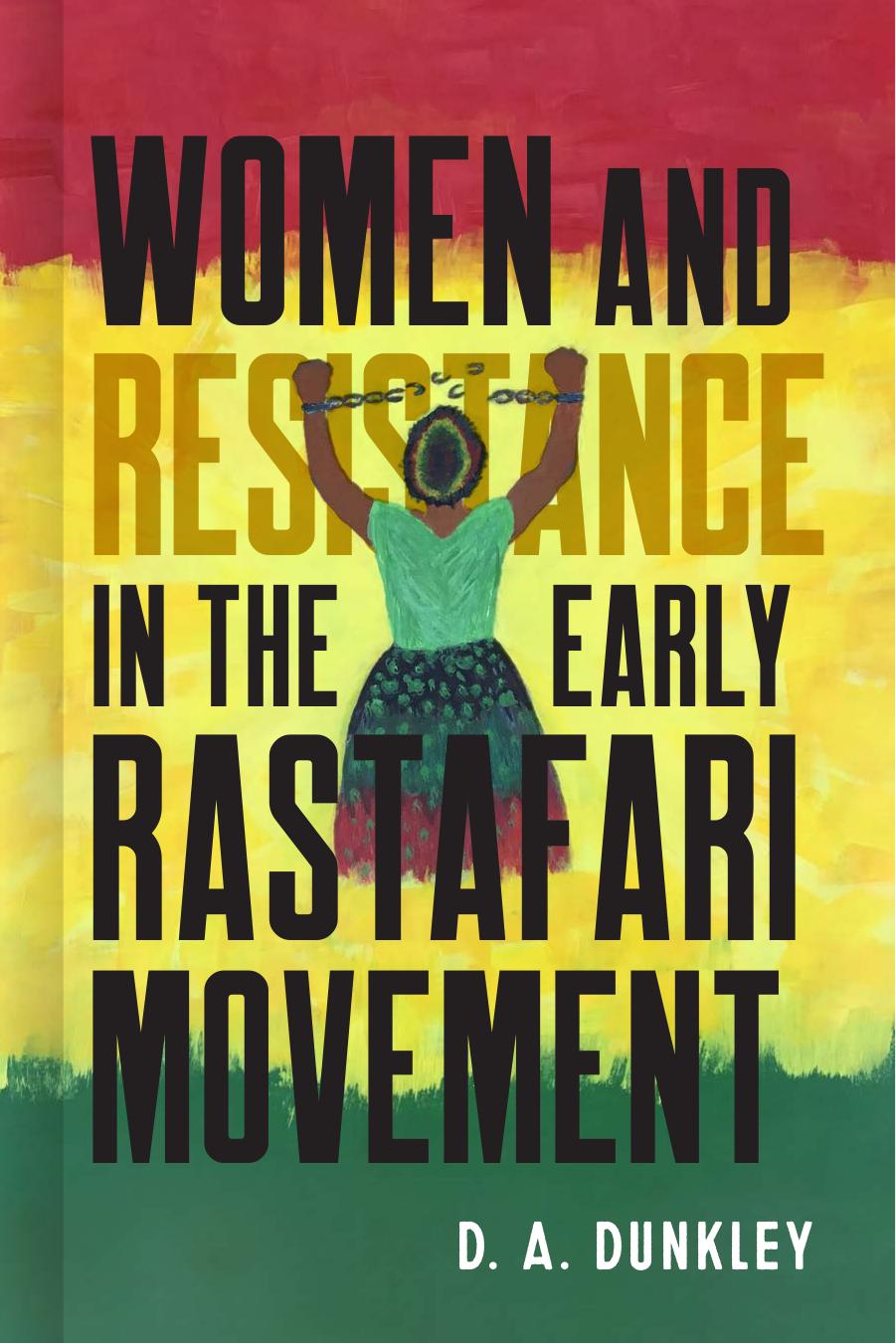Women and Resistance in the Early Rastafari Movement by Daive Dunkley

Author:Daive Dunkley [Dunkley, Daive]
Language: eng
Format: epub, pdf
ISBN: 9780807176283
Publisher: LSU Press
Published: 2021-08-23T05:00:00+00:00
CHAPTER 6
Audrey Lewis and the History of the Early Rastafariâs Development
Although Rastafari has become a major cultural force that has often been equated with Jamaican culture internationally, resistance to the heavily influenced European rules, values, and norms of the Jamaican society were a crucial part of Rastafariâs development. The early movement countered British colonial domination, as well as the creole nationalism of local labor leaders who pursued political independence through the British parliamentary system. Thus far, this book has provided stories about, as well as voices of, several early Rastafari women on various aspects of resistance. However, Audrey Lewis is the only early Rastafari woman presented who discusses the historical development of the Rastafari movement against the British colonial government and creole nationalism. Lewis was also known by her married name, Audrey Whyte, but reverted to her maiden name and is therefore referred to by that name here (fig. 3). Lewis recognized that the attempts of the colonial government to suppress Rastafari had serious epistemic implications, namely the distortion of the movementâs history and, by extension, its development. Therefore, past experiences stood as an important tool of resistance for the Rastafari movement, and Lewis sought to preserve and publish its story through oral history, both from the perspective of the movement and also from the perspective of women. As such, she was invested in ensuring that Rastafari remained an important part of the cultural landscape of Jamaica.
Lewis was socialized in the Rastafari movement from her childhood days and provided a largely counterintuitive account of the various experiences of women and men who entered the movement in the 1940s. In an interview conducted at her home in Salt River, Clarendon, on May 5, 2013, she gave testimony of the diverse range of womenâs adversities that had resulted from the suppression they faced during the colonial period. Her account of Rastafari history shows that women helped to sustain the cultural life of the first Rastafari members through their varied forms of resistance to counter the range of suppression they faced. Moreover, womenâs defense of men signified, overall, their defense of the whole movement from suppression. Lewisâs account bears similarity to the narratives of enslaved people. These slave narratives documented âevidenceâ of the conditions of slavery and the effort of the enslaved to resist slavery in the Caribbean, the same region into which Lewis was born in 1932.1
Download
Women and Resistance in the Early Rastafari Movement by Daive Dunkley.pdf
This site does not store any files on its server. We only index and link to content provided by other sites. Please contact the content providers to delete copyright contents if any and email us, we'll remove relevant links or contents immediately.
The Four Agreements by Don Miguel Ruiz(6747)
Breaking Free by Rachel Jeffs(4217)
The Hatha Yoga Pradipika (Translated) by Svatmarama(3329)
120 Days of Sodom by Marquis de Sade(3265)
Member of the Family by Dianne Lake(2352)
The Tao of Physics by Fritjof Capra(2272)
The Psychedelic Gospels: The Secret History of Hallucinogens in Christianity by Jerry B. Brown(2156)
The Road to Jonestown by Jeff Guinn(2063)
Going Clear: Scientology, Hollywood, and the Prison of Belief by Lawrence Wright(1982)
Going Clear by Lawrence Wright(1964)
Uriel's Machine by Christopher Knight(1898)
The Grand Grimoire: The Red Dragon by Author Unknown(1807)
The Gnostic Gospel of St. Thomas by Tau Malachi(1794)
Key to the Sacred Pattern: The Untold Story of Rennes-le-Chateau by Henry Lincoln(1630)
Animal Speak by Ted Andrews(1619)
The Malloreon: Book 02 - King of the Murgos by David Eddings(1589)
Waco by David Thibodeau & Leon Whiteson & Aviva Layton(1558)
The New World Order Book by Nick Redfern(1548)
The Secret History of Freemasonry by Paul Naudon(1492)
